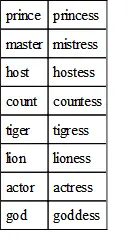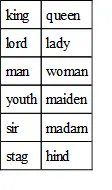Marian Wharton - Plain English
Здесь есть возможность читать онлайн «Marian Wharton - Plain English» — ознакомительный отрывок электронной книги совершенно бесплатно, а после прочтения отрывка купить полную версию. В некоторых случаях можно слушать аудио, скачать через торрент в формате fb2 и присутствует краткое содержание. Жанр: foreign_edu, foreign_language, на английском языке. Описание произведения, (предисловие) а так же отзывы посетителей доступны на портале библиотеки ЛибКат.
- Название:Plain English
- Автор:
- Жанр:
- Год:неизвестен
- ISBN:нет данных
- Рейтинг книги:5 / 5. Голосов: 1
-
Избранное:Добавить в избранное
- Отзывы:
-
Ваша оценка:
- 100
- 1
- 2
- 3
- 4
- 5
Plain English: краткое содержание, описание и аннотация
Предлагаем к чтению аннотацию, описание, краткое содержание или предисловие (зависит от того, что написал сам автор книги «Plain English»). Если вы не нашли необходимую информацию о книге — напишите в комментариях, мы постараемся отыскать её.
Plain English — читать онлайн ознакомительный отрывок
Ниже представлен текст книги, разбитый по страницам. Система сохранения места последней прочитанной страницы, позволяет с удобством читать онлайн бесплатно книгу «Plain English», без необходимости каждый раз заново искать на чём Вы остановились. Поставьте закладку, и сможете в любой момент перейти на страницу, на которой закончили чтение.
Интервал:
Закладка:
Thousands enlisted.
Three thousand enlisted.
Dozens came at my call.
Two dozen came when I called.
GENDER
85.All of the changes we have studied so far have been for the purpose of indicating number; but among the nouns that name living beings, many change to show to which sex the object named belongs. These nouns change in form to distinguish between the masculine and the feminine. This is called gender .
Gender is the distinction in words that denotes sex.
The nouns that denote females are called feminine nouns.
The nouns that denote males are called masculine nouns.
86.The feminine form is generally made by the addition of ess to the masculine form. Thus:

87.Names of things without sex are, of course, of neither gender, and are called neuter nouns . Neuter means literally neither . Such nouns as mountain , iron , river , chair , are neuter.
Sometimes the feminine is an entirely different word from the masculine. Thus:

88.Many nouns that denote living beings apply alike to male and female, and are said to be of common gender . As woman enters more and more into the business world and pursues the same occupations as man, the change in form to denote the feminine is used less frequently, and what we have called the masculine form is used for both sexes, thus:
Poet , waiter , doctor , editor —these nouns are used for both men and women.
POSSESSIVE FORM
89.There is just one more change made in the form of a noun, and that is when we wish to show who or what owns or possesses a thing. Thus we write:
John's book.
The boy's hat.
And since this form of the noun denotes possession, it is called the possessive form . Some grammarians call this the possessive case.
The possessive form of nouns is made by adding an apostrophe and s , ('s); thus, day's , lady's , girl's , clerk's .
To plural nouns ending in s add only an apostrophe; thus, days' , ladies' , girls' , clerks' .
When plural nouns do not end in s , their possessive forms are made by adding the apostrophe and s , the same as singular nouns, thus:
They make men's and women's shoes.
90.In words which end with a sound that resembles that of s , the apostrophe with s forms an additional syllable. Thus:
James's (pronounced James-ez.)
Mr. Lynch's (pronounced Lynch-ez.)
The only exception to the rule occurs when the addition of another s would make too many hissing sounds, then we add the apostrophe alone. Thus:
For goodness' sake.
In Jesus' name.
91.In forming the possessive of compound nouns, the possessive sign is always placed at the end, thus:
My son-in-law's sister.
The man-of-war's cannon.
92.When we wish to show that a thing belongs to two or more persons who are joint owners of it, we add the possessive sign to the last word only, thus:
Carson, Price and Scott's store.
Mason and Hamlin's pianos.
If it is a separate ownership that we wish to denote, we place the possessive sign after each name, thus:
Bring me John's and Mary's books.
Lee's and Grant's armies met in battle.
Remember that the noun has just three changes in form, one for the plural number, one to denote gender and one for the possessive form. Watch carefully your own language and that of your friends and note if these changes are correctly made.
Exercise 3
Write the plural form of each of the following:
ax
beef
chief
hero
knife
T
hoof
man-of-war
axis
basis
cherry
leaf
son-in-law
Mr. Smith
thief
Doctor Wood
alley
buffalo
chimney
staff
Frenchman
Miss Brown
ox
spoonful
alto
calf
cargo
two
3
tooth
foot
turkey
Exercise 4
Underscore the nouns in the following:
How many abstract nouns?
How many concrete?
How many singular?
How many plural?
If fifty men did all the work
And gave the price to five;
And let those five make all the rules—
You'd say the fifty men were fools,
Unfit to be alive.
And if you heard complaining cries
From fifty brawny men,
Blaming the five for graft and greed,
Injustice, cruelty indeed—
What would you call them then?
Not by their own superior force
Do five on fifty live,
But by election and assent—
And privilege of government—
Powers that the fifty give.
If fifty men are really fools—
And five have all the brains—
The five must rule as now we find;
But if the fifty have the mind—
Why don't they take the reins?
Exercise 5
Select all the nouns in the following. Write their singular, plural and possessive forms. Decide whether they are abstract or concrete, common or proper or collective, masculine, feminine or neuter.
Brother!
Whoever you are, wherever you are on all the earth, I greet you.
I extend to you my right hand.
I make you a pledge.
Here is my pledge to you:—
I refuse to kill your father. I refuse to slay your mother's son. I refuse to plunge a bayonet into the breast of your sister's brother. I refuse to slaughter your sweetheart's lover. I refuse to murder your wife's husband. I refuse to butcher your little child's father. I refuse to wet the earth with blood and blind kind eyes with tears. I refuse to assassinate you and then hide my stained fists in the folds of any flag.
Will you thus pledge me and pledge all the members of our working class?— Kirkpatrick.
SPELLING
LESSON 4
Some of our consonants also have more than one sound. We have also certain combinations of consonants which represent one sound. This combination of two letters to represent one sound is called a digraph, as gh , in cough , ch in church . A digraph may either be a combination of two consonants or of two vowels or of a vowel and a consonant. The following table contains the consonants which have more than one sound:
c—k as in cat
c—s as in vice
g—j as in ginger
g— hard as in go
s—sh as in sure
s—zh as in usual
s— soft as in also
s—z as in does
x— soft as in extra
x—gz as in exist
The following table gives the digraphs most commonly used:
ng—as in ring , tongue
ch—as in church and much
ch—k as in chasm
ch—sh as in chagrin
th—as in then , those
Читать дальшеИнтервал:
Закладка:
Похожие книги на «Plain English»
Представляем Вашему вниманию похожие книги на «Plain English» списком для выбора. Мы отобрали схожую по названию и смыслу литературу в надежде предоставить читателям больше вариантов отыскать новые, интересные, ещё непрочитанные произведения.
Обсуждение, отзывы о книге «Plain English» и просто собственные мнения читателей. Оставьте ваши комментарии, напишите, что Вы думаете о произведении, его смысле или главных героях. Укажите что конкретно понравилось, а что нет, и почему Вы так считаете.












